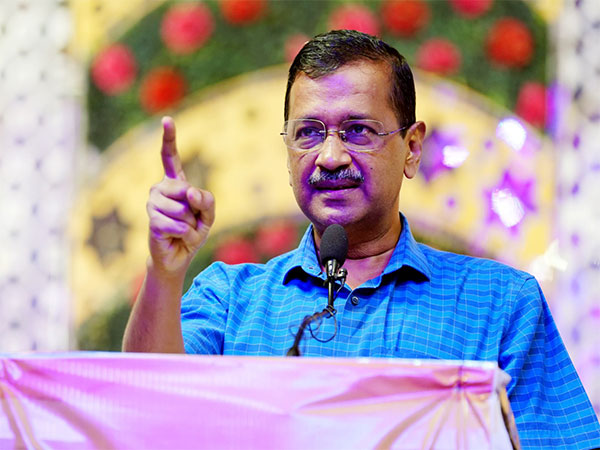
Olatunji Ope is the Executive Director and Co-founder of Ujama Learning and Support Foundation, an organization that was established to address issues around education, industry/economic empowerment and social values, especially for youths, the girl child and those in rural and underserved areas in urban areas. In this interview with Ikechi Nzeako , he says many small businesses will continue to struggle because of the high interest rate and urges the government to grant loans to SMEs in key economic areas at single digit interestrates. Tell us the foundation? The foundation was established to address issues around shared social values, education and industry/economic empowerment especially with focus on those in rural and underserved areas in urban areas.
There are the three critical elements that hold up any country: the educational system, social values and the industry/social empowerment. If people are not economically empowered, it will affect the nation. If the educational system is not functional or not contemporarily relevant, it will affect the performance of the economy and the development of the people.
The most important of all is social value and we want to address this because the kind of social values deficit that we see in the country right now is not accidental; it is something that has been happening for a while but people did not see it or consider it urgent enough to address it. We need to understand that most of the challenges we are facing in the country right now are the absence of those social values or principles that used to guide us in the past. The idea is to ensure that we build a corps of people across the country, people who can serve as mentors and coaches and engage in all those areas: education, social empowerment and industry.
And you can only build from the ground up. The idea is to start from schools, institutions and organizations. There is a need to engage with youths and try to redirect their thinking and energy into wholesome activities within our neighbourhoods and schools This is what we are doing through our behaviour change programmes which we believe is the bedrock of any strategy that we have to address the challenges in the educational system, our productive sector and citizen interface/engagement I want you to talk more about what you do in the industry area? The challenges that we see is that we are in a situation where most of the critical areas that will serve our economy are not being addressed.
It’s easy to point out what the government is doing or not doing but it is more difficult not to see that whatever we see that is not happening right now is just part of the whole. We are looking at the symptoms rather than the cause, thus we are tackling those issues as they present themselves to us without interrogating the causes which are more systemic and an outcome of the interplay between different factors which in themselves throw up those symptoms that we see If you are looking at investment in education, there is a big problem because the system lets you see the outcomes without letting you see the causes or demonstrating sufficient openness to let you interrogate those factors responsible for the outcomes: the institutional structure and processes, the curriculum concept, development and delivery, as well as learning delivery which impacts how and what students take away from classes. When you consider these issues, you will see there is a problem.
But what we see in the industry is apparent because it affects our pockets, our homes and businesses. There is no country in the world that has its economy growing away from the private sector or the SMEs. The private sector and the SMEs are always the foundation for the growth and development of every developed country.
There needs to be a more strategic and process driven approach to how SMEs are established, supported and sustained because they serve the economy in different ways. They provide employment, serve larger productive and manufacturing entities and serve as the basis for FDI engagement. No country can attract Foreign Direct Investment (FDIs) without consciously and deliberately growing Local Direct Investment (LDIs) What is your assessment of economic and financial managers of the Nigerian economy? We have found ourselves in a situation in which our economic and financial managers implement textbook policies that are unsuitable for the Nigerian situation.
You cannot address the excess liquidity in the economy by raising interest rates when we all know the source of that excess liquidity is not within the ambit of the commercial, productive or manufacturing sectors. If the economy is awash with liquidity from the people’s side, it points to the fact that there is strong consumer purchasing power which will lead to profitable entities and consequently, growth in the economy. However, when the source of that excess liquidity is not that transparent and within a certain class of people, and you are punishing the mass of the people and businesses on the basis of that liquidity by raising interest rates, you hobble the most important sectors of your economy.
You cannot grow a strong economy highdouble digit interest rates. Countries interested in the strong recovery of the economies post-COVID 19 are ensuring that loans stay in the very low single digit bracket, typically between 1-6%. There should be a rethink of those kinds of policies to reduce interest rates.
You cannot grow the economy at double digit interestrate. And we are still doing that long after it is apparent that has not helped the economy. Over the years we have been doing that and we still expect some kind of development.
It will never happen. It’s much worse now because a whole lot of dysfunctionality has been introduced in the system because our social and political institutions are not flexible or responsive enough to address the obvious challenges faced by businesses No matter how right the government policies are, if the effect is negative on the economy then that means there is a need to rethink the policy or implementation of that policy. If we are looking at how things played out in the last 10, 15 years we see a consistently negative rise in cost of energy, electricity and fuel which is negatively impacting everyone right now in a depressed economy where those are 2 critical factors that drive businesses What is your view on inflation in the country? Inflation has its own impact in industry.
It is double fold. It has an impact on industry because people need to cough out three to four times the cost of input that goes into production and of course the end users have to bear the cost of the increase in the cost of input in production. The economy moves multi directionally.
If the economy is not seen from that perspective, every single policy affects the implementation of another policy in another sphere, we cannot move forward. We have security, infrastructure, funding and institutional support challenges, all playing a role in driving inflation We are seeing government agencies blowing up billions of naira without impact because those things that should drive activity as earlier stated, like security and infrastructure have not been addressed. Those volumes of cash would be better spent addressing challenges in the system to help people and businesses but unfortunately the people that are supposed to benefit from it are struggling.
You can’t throw money at a problem that is systemic; so until you address those systemic issues, you cannot resolve the issues. Example: how many farmers are getting benefits from government intensive agricultural programmes? This is why those ones who are functioning now are large scale-holder farms who are mostly export centred because they need to make money. It makes more sense for them to sell to a market that is going to pay them more for their efforts and inputs than to sell to a market that is struggling to survive.
Government agencies/institutions that are supposed to address the issues appear not to recognize those challenges or if they recognize them, are not doing anything about them because for them what is required is, draft policies, raise capital then implement policies or funding specific sectors, then see what impact it can make, without audit or impact assessment to confirm achievement of objectives.










